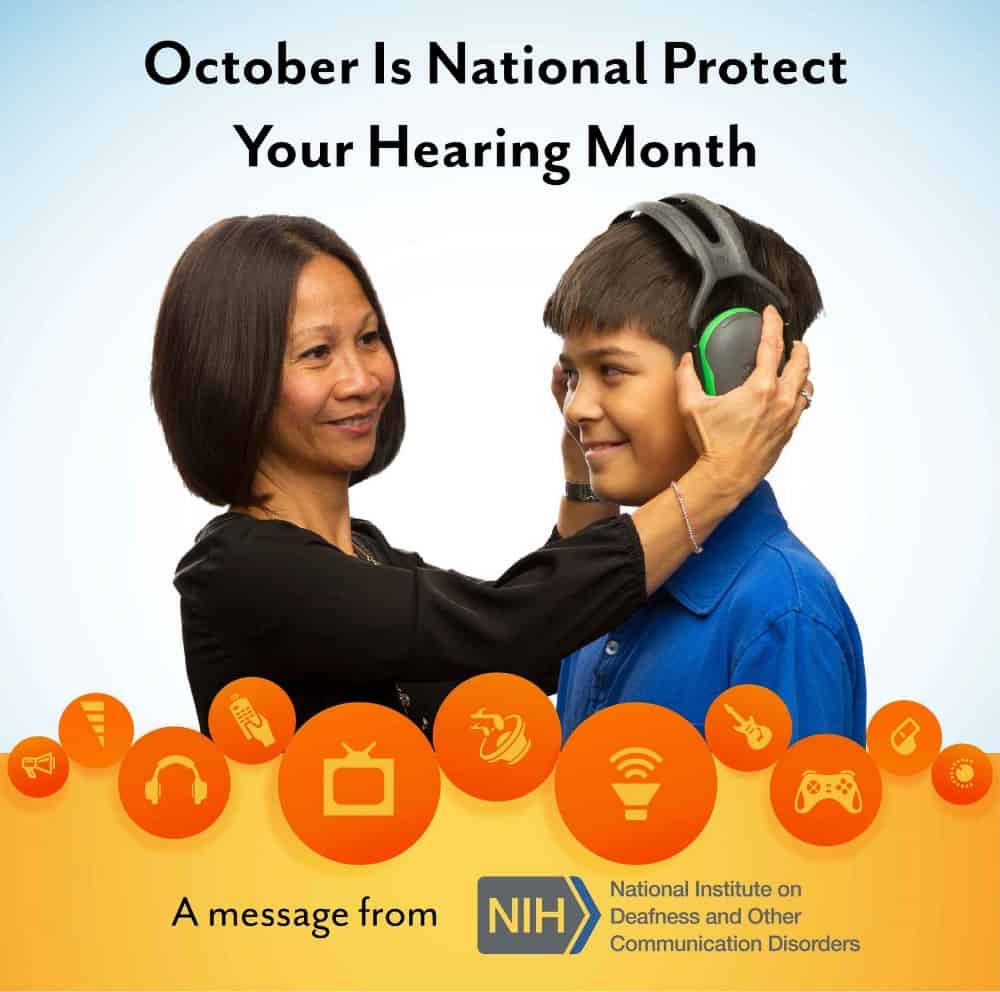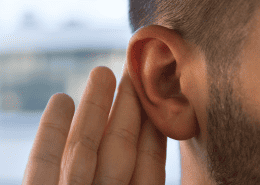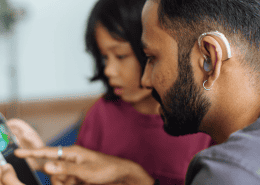
October is National Audiology Awareness Month
Are you aware that October is National Audiology Awareness and National Protect Your Hearing month? The National Institute on Deafness and other Communication Disorders observes National Protect Your Hearing Month each October in order to raise awareness about the causes and prevention of noise-induced hearing loss (NIHL).
What is NIHL?
NIHL is a permanent form of hearing loss caused by damage to the tiny hairs within the inner ear. The damage can be caused by noises that are too loud or being subject to loud noises for a long time. Noise above 85dB can cause damage to hearing, so for perspective, here are some comparisons:
- The average conversation is said to be 60-70dB
- A vacuum cleaner is 75dB
- Movie theatres can be as loud as 104dB
- Sirens can be 110-129dB
- Fireworks can be as loud as 160dB
Your distance from the sound can also be a factor, so you should stay away from the source of loud sounds when possible.
NIHL and Prevention
Noise-induced hearing loss is quite preventable and common, but unfortunately it frequently goes untreated and unnoticed until it becomes too severe to ignore. On the bright side, it can be easily prevented with a little attentiveness and caution.
Here are a few ways to protect your hearing:
- Use protective devices. Earmuffs or well-fitting earplugs can reduce up to 30dB and should be used when exposed to sounds over 85dB. Any loud equipment noise, such as construction, or even prolonged exposure to loud music can contribute to hearing damage and should be avoided or protected against.
- Lower the volume. To keep the volume of your speakers, headphones or earbuds at a reasonable volume, don’t turn it up so high that it drowns out the background noise. It’s too loud if you feel as if you have to shout over it or can’t hear external noise.
- Take breaks. You should take breaks after prolonged exposure to loud sounds, such as loud venues (concerts, sporting events, etc.),and after wearing earbuds for 60 minutes. Your ears need break time in order to recover, even if what you are listening to is at a relatively low volume
- Don’t put off testing. You may already suffer from noise-induced damage and even if you have not developed hearing damage, regular checkups are important for early detection and prevention.
Here are some signs you may have hearing loss:
- Ear pain.
- Ringing in the ears.
- Ringing, buzzing, or hissing noises in the ear after fireworks being set off.
- Muffled hearing after fireworks.
- Difficulty understanding phone conversations, understanding people speaking to you, and asking people to repeat themselves.
- People telling you that you speak too loudly.
- Suddenly having to turn up the volume of the television, radio, or stereo and/or having other family members complain about the volume being too loud.
- Sudden inability to hear household sounds such as the doorbell ringing or the dog barking.
Are You Concerned About Your Hearing Lately?
Hearing loss can be sudden or it can happen over many years. If you think you have hearing loss, see an audiologist. Getting your hearing tested is crucial in prevention. Please contact us if you have any questions or would like to set up a screening.

What Happens When You’re Diagnosed With Sudden Sensorineural Hearing Loss (SSHL)?
Hearing Loss
Hearing Relief: Do Hearing Aids Help Tinnitus Sufferers?
Hearing Aids
Can the Ringing in the Ears, Also Called Tinnitus, Be Cured?
Common Questions - General, Hearing and Disabilities



Share this entry